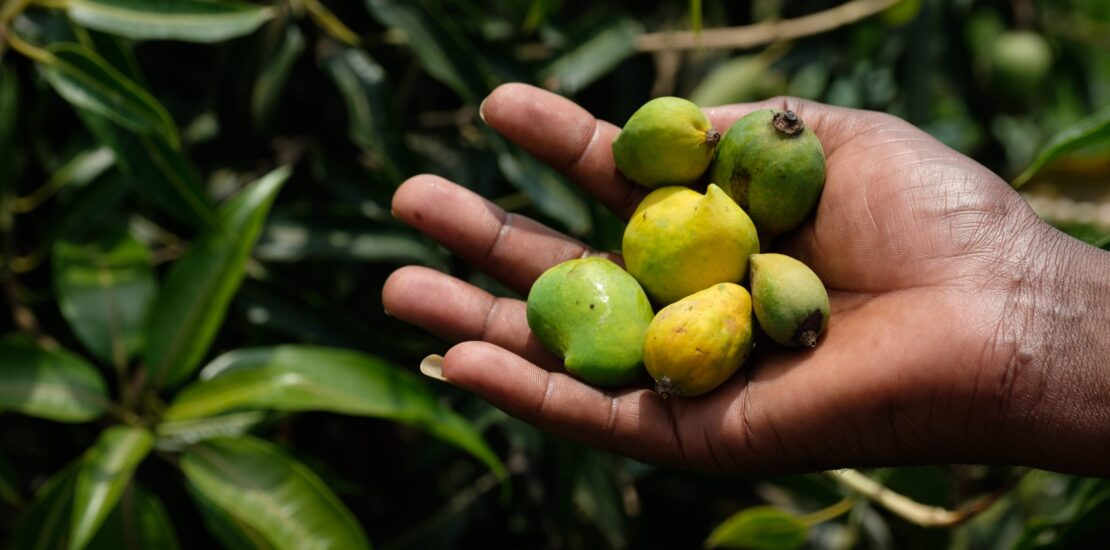Prospects for domestic and regional markets throughout ACP countries
- 17/04/2020
- Posted by: Gaetan Dermien
- Category: Africa, Caribbean, News, Pacific

AFRICA
A Zimbabwe exporter of fresh vegetables that also sells regionally and locally reports that after 3 days of lockdown, the government relaxed the rules for key sectors: health, agriculture, food manufacturing and distribution. This saw local markets partially open and trade has been going on, although at a slow pace. The bulk of agro-commodity prices have slumped, except for lemons and partially avocado. Farms have been asked to lockdown but operate with housed labour inside the farm. Regarding exports, KLM Cargo is flying in three times a week and there is additional space from refrigerated trucks running into Joburg and flying out from there. So produce is still moving. The company has stopped exporting soft fruit (berries) because prices have collapsed in Europe, as these products are now considered non-essential in the main. While a small percentage is going into local markets, some fruit is being thrown away. But demand for vegetables from EU and UK has actually increased, and all that is produced is going into the markets at good prices, in some cases increased prices due to shortages.
A vegetable exporter in Madagascar reports that the containment measures are being followed as best they can, but the fact that the majority of Malagasy people are in the informal sector does not make the government’s task any easier. At their factory, production is still relatively unscathed, with green beans collected and in line with tonnage forecasts. Protective measures for workers are well in place: systematic temperature checks, masks for everyone, increased hand washing facilities at site access points, and 1 metre spacing in the factory which has forced us to review the configuration of the workstations. But the slowdown is being felt by suppliers of produce, who also working in downgraded mode.
A blog post by the International Food Policy Research Institute (IFPRI, 13 April) describes a preliminary survey (23 March–2 April) with small-scale farmers, large-scale investors, brokers, agro-input dealers and development agents in the area between Ethiopia’s Central Rift Valley and Addis Ababa. Early insights on the impacts of the pandemic are:
- There is less trading activity in Addis’s vegetable wholesale market (Atkilt Tera) since the start of the COVID-19 crisis, despite this being the fasting season when vegetable consumption is usually higher. This appears to be due to larger traders reducing their activity; travel bans reducing the volume and frequency of trucks coming to the city; a slowing of the restaurant trade; and an unfortunate misconception among some urban residents that consuming raw vegetables increases the likelihood of contracting and spreading the virus.
- Urban retail prices are not significantly affected so far – both supply and demand are affected, with reduced urban demand being balanced by the declining vegetable supply to Addis Ababa.
- However, producer prices for vegetables are rapidly declining due to reduced demand from the city, oversupply, and fewer buyers (although this may also be in part due to seasonal patterns).
- Farm losses appear to be increasing, with some vegetables left on the field to rot due to lack of buyers.
- Prices of important inputs – fungicides, insecticides, herbicides, fertilizers and improved seeds – are increasing because of shortages linked to the closure of land borders, and reduced imports from China.
- Labour is becoming scarce due to restrictions on movement and gathering of people, with labourers increasingly returning to their home areas.
Although this is an early study which will be built on in the coming weeks and months, initial policy implications are:
- Declining urban demand for high-value and nutritionally rich fruits and vegetables may be driven by misinformation linking consumption of these foods to the spread of the virus – if so, there is a need for widespread and effective information campaigns to counter this misunderstanding.
- Ensuring that travel bans do not negatively affect food trade is paramount.
- Ensuring availability of agricultural inputs to farmers at low prices, as well as assuring incentives for their production, should be a priority over the next few months.
Fresh produce markets in the South African province of Gauteng, particularly Johannesburg and also Tshwane, are much quieter than usual and the absence of foreign buyers is hugely affecting sales (Fresh Plaza, 16 April). South Africa is the only apple producer in the region, and the dominant source of citrus. Under current regulations, although food transport may continue, cross-border passenger traffic has been suspended and buyers from neighbouring countries like Swaziland, Mozambique and Zambia have decreased sharply, strongly affecting sales on the fresh produce markets. Apples and pears are particularly hard hit, with stocks building up. At the moment fruit is regarded as a luxury item. The Zambian Business Times reported at the end of March that Lusaka fruit traders were finding it difficult to replenish stocks, with orange and banana prices rising swiftly. At the markets, sales of staple vegetables like potatoes, onions and tomatoes are reported to be much stronger than fruit: as temperatures fall across South Africa, consumers are turning away from fruit and towards vegetables.
CARIBBEAN
The Barbados Agricultural Society reports that the COVID-19 experience in the Caribbean is modest compared with the experiences of developed countries such as Spain, Italy and the USA. Governments in the region have implemented measures to protect their populations, which has probably to a large degree minimised the health impact of the virus. However, the implementation of social distancing measures has resulted in the agricultural sector being placed under considerable stress. Supply chain disruption has resulted from the implementation of the measures, producing some challenges and opportunities. One challenge is the closure of supermarkets, which are major buyers of local agricultural products. Another challenge of the shutdown has been the fact that input suppliers have expressed concern about the ability of farmers to service their debt because of reduced cash flows as a result of the closure of the supermarkets and other buyers of farmers’ produce. The hotels and restaurants are also closed, which is another loss of revenue and a major concern for local farmers.
PACIFIC
A grower/exporter of agricultural products in Fiji also reports experiencing a lockdown and closure of the business until further notice. Work has stopped and farms/harvesting are not being attended to by farmers. The farming community is also facing financial difficulties as the company cannot make payments.


![(Re-)Discover the producers’ and SMEs innovations in agroecology presented at the PAFO-COLEAD Innovations Session n°13 PAFO-COLEAD – Innovation Series [BANNER]](https://news.colead.link/wp-content/uploads/2023/05/PAFO-COLEAD-Innovation-Series-BANNER-150x150.jpg)

